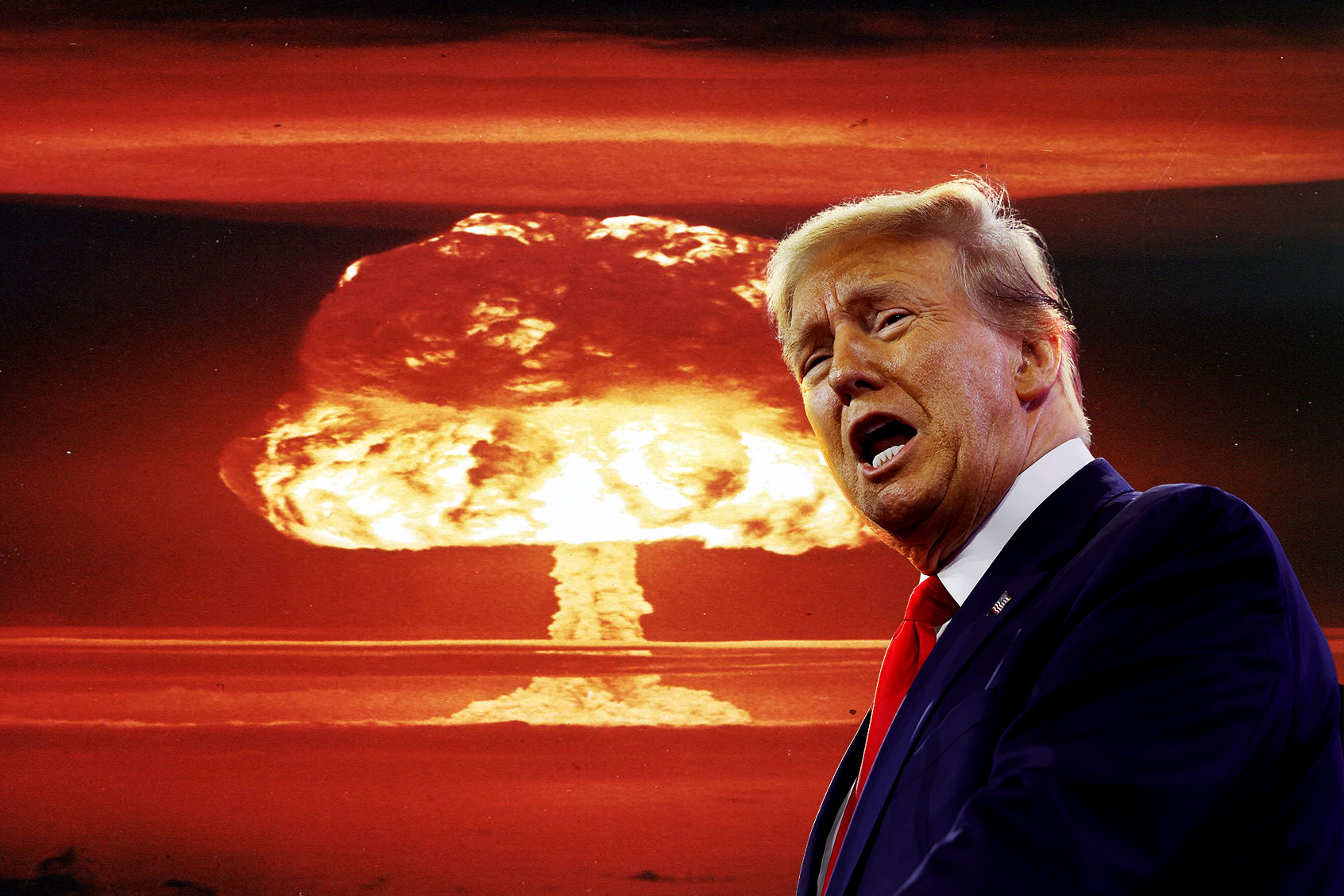World
Trump Moves to Resume Nuclear Testing, Igniting Global Concerns

President Donald Trump has announced plans to resume nuclear testing in the United States, a move that has raised alarms both domestically and internationally. This decision comes after a three-decade moratorium on such tests, amid his claims that other nations are reviving their nuclear capabilities. Critics argue that his assertions do not align with current global nuclear activities, as only North Korea has conducted tests in recent times.
The announcement, made during Trump’s return trip from Asia, has provoked questions about the motivations behind it. Speculation has arisen that recent cultural influences, including the film “House Full of Dynamite” by acclaimed director Kathryn Bigelow, may have shaped his perspective on nuclear issues. The film portrays a fictional nuclear attack on the U.S., which some believe could have impacted Trump’s thinking as he grapples with the complexities of global nuclear dynamics.
Trump’s rationale for resuming testing is reportedly based on his belief that the U.S. must respond to the actions of other countries. However, this reasoning has been challenged, as no other nuclear powers have conducted tests since the 1990s. Observers note that Trump’s understanding of nuclear issues appears superficial, often relying on the legacy of his late uncle, Dr. John G. Trump, a physicist from the Massachusetts Institute of Technology.
During his 2016 presidential campaign, Trump made statements that raised eyebrows regarding his grasp of nuclear policy. For instance, he expressed a desire to negotiate arms agreements but failed to provide concrete plans. In interviews, he has questioned the United States’ nuclear capabilities, suggesting a lack of awareness of the country’s historical arms control efforts, which include significant reductions in nuclear warheads over the decades.
Trump’s approach to nuclear strategy has often been marked by impulsive rhetoric. He previously threatened North Korean leader Kim Jong Un with “fire and fury,” demonstrating a penchant for bombastic threats rather than strategic dialogue. In recent years, his administration has seen a shift toward a more aggressive stance on nuclear policy, with advisors advocating for a looser framework regarding nuclear weapons use, particularly in response to cyber attacks.
The implications of resuming nuclear testing are profound. While Trump may view such tests as a means of demonstrating strength, experts argue that they would only heighten international tensions without contributing to national security. The sophisticated testing systems currently employed by the U.S. do not necessitate physical detonations, raising questions about the rationale behind such a decision.
As discussions around nuclear policy evolve, Trump’s capability to make unilateral decisions regarding nuclear strikes remains a source of concern. The administration’s reliance on a cadre of advisors, many of whom hold hawkish views, could further complicate the landscape of U.S. nuclear strategy.
In conclusion, Trump’s potential move to resume nuclear testing represents a critical moment in U.S. foreign policy. The ramifications of such actions could not only impact diplomatic relations but also raise existential questions about global security in an increasingly polarized world. As this situation unfolds, the need for informed decision-making based on historical context and expert insight has never been more urgent.
-

 Science3 weeks ago
Science3 weeks agoIROS 2025 to Showcase Cutting-Edge Robotics Innovations in China
-

 Politics2 weeks ago
Politics2 weeks agoJudge Considers Dismissal of Chelsea Housing Case Citing AI Flaws
-

 World3 weeks ago
World3 weeks agoBravo Company Veterans Honored with Bronze Medals After 56 Years
-

 Lifestyle3 weeks ago
Lifestyle3 weeks agoStone Island’s Logo Worn by Extremists Sparks Brand Dilemma
-

 Health3 weeks ago
Health3 weeks agoStartup Liberate Bio Secures $31 Million for Next-Gen Therapies
-

 Health3 weeks ago
Health3 weeks agoTop Hyaluronic Acid Serums for Radiant Skin in 2025
-

 Top Stories3 weeks ago
Top Stories3 weeks agoIndonesia Suspends 27,000 Bank Accounts in Online Gambling Crackdown
-

 Sports3 weeks ago
Sports3 weeks agoMel Kiper Jr. Reveals Top 25 Prospects for 2026 NFL Draft
-

 World3 weeks ago
World3 weeks agoHoneywell Predicts Record Demand for Business Jets Over Next Decade
-

 Lifestyle3 weeks ago
Lifestyle3 weeks agoMary Morgan Jackson Crowned Little Miss National Peanut Festival 2025
-

 Sports3 weeks ago
Sports3 weeks agoYamamoto’s Mastery Leads Dodgers to 5-1 Victory in NLCS Game 2
-

 Science3 weeks ago
Science3 weeks agoArizona State University Transforms Programming Education Approach









